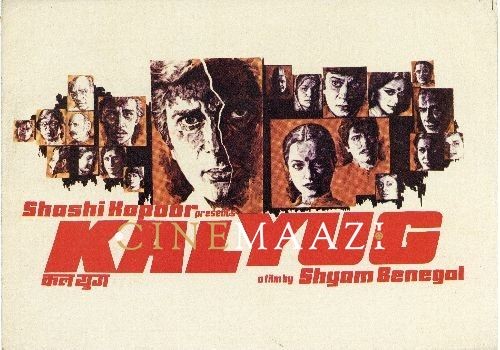The Story behind Kalyug: Shashi Kapoor and Shyam Benegal's acclaimed collaboration
Subscribe to read full article
This section is for paid subscribers only. Our subscription is only $37/- for one full year.
You get unlimited access to all paid section and features on the website with this subscription.
Not ready for a full subscription?
You can access this article for $2, and have it saved to your account for one year.
Soon after Junoon, Shashi Kapoor and Shyam Bengal began charting plans for the future. ‘I asked Shashi if he would like to produce a second film, based on an idea that (actor and playwright) Girish Karnad and I had been working on for some time,’ Shyam says. ‘It was to be a modern rendering of a family feud among cousins-which, in fact, forms the basis of the Mahabharata. Girish had drafted the outline of a script and Shashi agreed to produce it.’ That was how Kalyug, the second Shashi-Shyam collaboration, which modernized an Indian epic, began.
The cast was almost as large as the Mahabharata, and Shyam brought in a range of young and senior actors, including Raj Babbar, Anant Nag, Sushma Seth, Kulbhushan Kharbanda, Vijaya Mehta, Supriya Pathak and Victor Banerjee, and two big stars - Shashi, who’d play the role of Karan Singh (or Karna of the Kauravas), the advisor and loyalist to the Khubchand clan; and Rekha as Supriya, the Draupadi - like wife of Dharamraj (a character akin to Yudhishthira, played by Raj Babbar), head of the competing Puranchand family. To complicate this interwoven narrative is a subplot involving Supriya, who is secretly in love with her brother-in-law, Bharat (Anant Nag as the modern-day Arjuna). What follows is a tale of violent corporate conflict and familial bloodlust.
With his plans failing through, Shashi, without any bitterness, accepted the part of Karan, even conceding, ‘Had [Soumitra] performed he would have done more justice to the character than I [could]. Shyam says, ‘That was how he was - he was okay sharing space even though he was a big star. Now, there are very few who do that.’
According to Dev Benegal, who had secured his first film unit job in Kalyug, Shashi upon accepting the role of Karan, was an absolutely professional actor. He would get into the skin of the character - almost as though he were on stage. He would be in the wings within an hour of receiving the script and dive into the role.
.jpg/Shashi%20Kapoor%20(2)__590x480.jpg)
The instant when Shashi learns of his mother is one among several remarkable moments in Kalyug. Although each character grabs limited screen-time, many have intensively felt scenes - be it Sushma Seth’s Savitri, the Puranchand matriarch (or Kunti), who conveys with a great deal of pathos her disapproval of the family feud; or the moment when Victor Banerjee’s Dhanraj (or Duryodhana) accepts Karan’s resignation. These performance driven moments; the flashes of intrigue; and the disturbing, erotic ending, quite unlike anything attempted in Hindi cinema prior, make Kalyug a notable drama.
Despite good intensions and some amazing performances, Kalyug failed at the box office. Shashi tells Madhu Jain that the film lost Rs. 10 lakh.
In 1988, B.R. Chopra produced and directed a 94-episode Doordarshan television serial - a faithful, if over-the-top, retelling of the Mahabharata. The show, with deep religious connotations, was a huge success. In contrast, Kalyug, which made an early attempt at finding contemporary meaning in an ancient epic, failed to sit well with the audience.
This feature is an excerpt from Aseem Chhabra's book Shashi Kapoor: The Householder, the Star originally published by Rupa Publications, 2016.
Tags
About the Author
Aseem Chhabra is a film journalist, freelance writer and film-festival programmer in New York City. He has been published in The New York Times, The Boston Globe, The Philadelphia Inquirer, Outlook, Mumbai Mirror, Rediff.com, has a regular colum in The Hindu; and has been a commentator on Indian cinema adn popular culture on NPR, CNN, BBC, as also ABC's Good Morning America, Associated Press and Reuters. Aseem is the festival director of the New York Indian Film Festival and the Silk Screen Asian American Film Festival in Pittsburgh. He is also the voice of Shadow Puppet #1 in director Nina Paley's award-winning animated film, Sita Sings the Blues.
Aseem is from Delhi, lives in New York, and visits India often. Ge can be followed on Twitter @chhabs.







.jpg)


